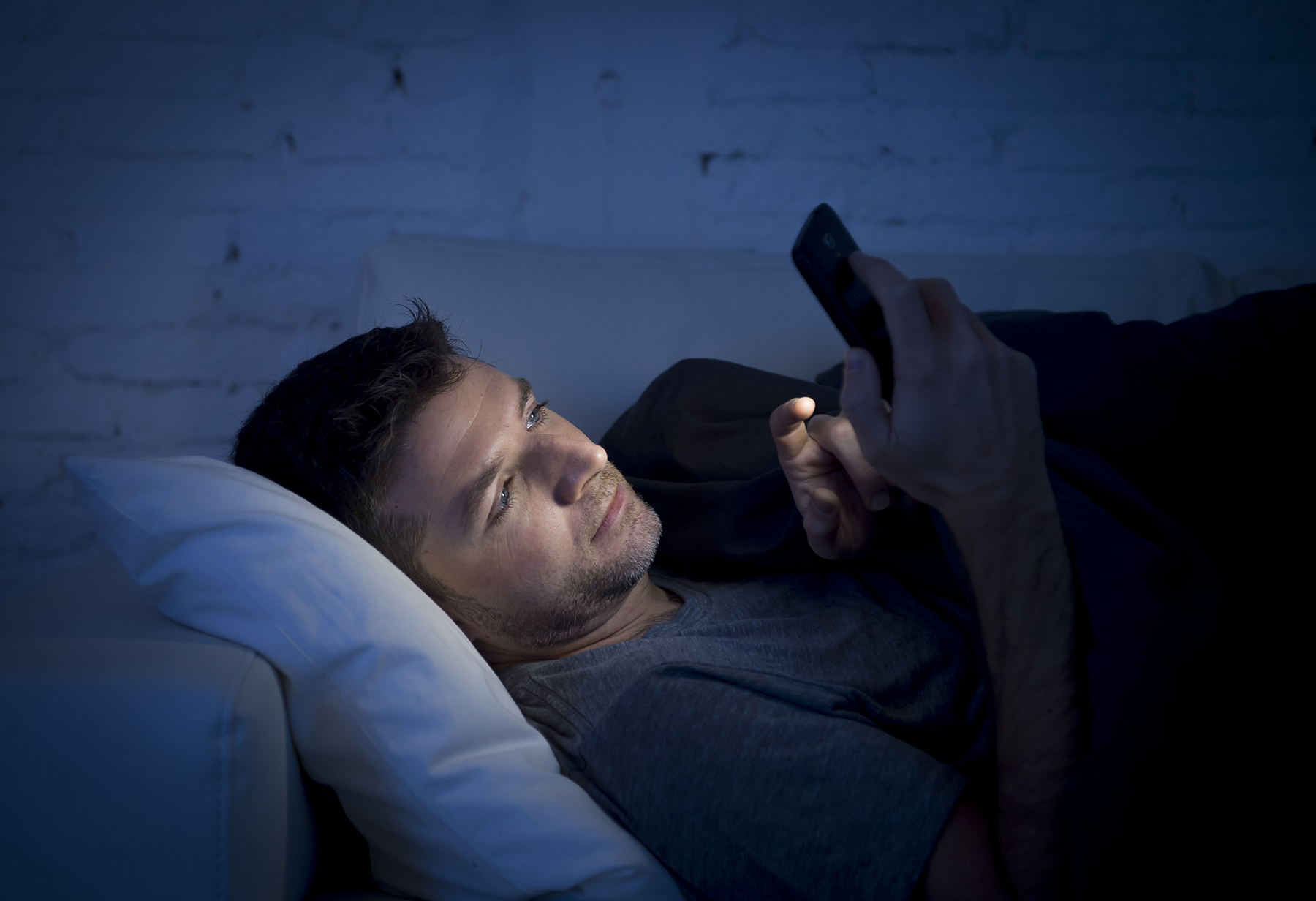Lutein: Love it or Leave It?

Can a supplement protect your eyes against blue light from digital devices?
There’s no escaping blue light. It comes from your phone, computer, tablet, and your TV. Scientists already know that blue light affects melatonin, which can disturb sleep/wake patterns, but does it harm your eyes? Several vitamin manufacturers think so and are marketing “blue-light filtering” eye health supplements. Before you embrace the latest health trend, consider what a doctor from the nation’s top eye hospital has to say.
First of all, it helps to understand blue light and lutein.
“Ultraviolet (UV) light is harmful to the eyes and blue light is closest to ultraviolet on the visible spectrum. Blue light creates an imbalance between the production of free radicals and your body’s ability to neutralize them with antioxidants. While there’s no evidence suggesting that screen use damages the eyes, we don’t know the long-term effects, especially on people who have used electronic devices since childhood,” says Jayanth Sridhar, M.D., an ophthalmologist at Bascom Palmer Eye Institute.
When you stroll the vitamin aisle, you will see lutein among the eye health supplements. Manufacturers claim that it filters the light emanating from your favorite screen. There is some truth to that.
“Lutein, as well as zeaxanthin, are carotenoids found in the macula of the human eye. They protect your eyes in two ways. First, they help filter out blue light. Second, they get rid of the free radicals that damage cells and cause disease over time,” Dr. Sridhar says, adding, “That’s why lutein is marketed as blue light protection.”
While naturally-occurring lutein and zeaxanthin play a role in eye health, there’s little proof that supports taking supplements. There’s also no established dose for lutein and zeaxanthin.
“No one knows the maximum safe limit or required dose,” says Dr. Sridhar.
So far, the only study showing a connection between eye health and supplements is the Age-Related Eye Disease Study 2 (AREDS 2), conducted by the National Eye Institute. In that research, the only people who benefited from taking lutein and zeaxanthin were those who already had intermediate or advanced macular degeneration.
Practical protection
When you look at a screen, your eyes must constantly adjust to reading up close. This causes eye strain, headaches, or dry eyes.
If you find it hard to keep from staring at a screen for work or pleasure, Dr. Sridhar has some common sense suggestions. Just as you protect your eyes from sunlight, give your eyes frequent rest breaks.
Try using the 20-20-20 rule: for every 20 minutes of screen time, shift your focus to something 20 feet away for 20 seconds.
This reduces eye strain by relaxing your eye muscles. Most of us break this rule when we’re absorbed in the latest Netflix series or a work deadline. To simplify matters, Dr. Sridhar tells his patients to take a break whenever they start to feel eye strain.
Eat your veggies
Good vision starts on the inside, with a healthy diet. According to Dr. Sridhar, you can achieve good levels of lutein and zeaxanthin with a balanced diet. Spinach, kale, collards, broccoli, and other dark leafy greens, as well as egg yolks, are good sources.
In fact, you may be better off spending money on healthy foods than on supplements. “I don’t routinely recommend eye vitamins to my patients. Except for the AREDS study, there’s no evidence that supplements help,” Dr. Sridhar says.
Tags: Bascom Palmer Eye Institute, blue light, eye health supplements, eye vitamins, Jayanth Sridhar, lutein, screen time, zeaxanthin
